Composting is one of the most effective and environmentally-friendly ways to dispose of organic waste from your garden. Not only does it help to reduce the amount of waste. That ends up in landfills. But it also provides a valuable source of nutrients for your plants and helps to improve soil quality.
We have given you some tips to help. In this blog post, we’ll cover everything you need to know about composting, from the basics of what it is and how it works to the different composting methods you can use in your garden. We’ll also provide tips on choosing the right compost bin or system for your needs, maintaining and troubleshooting your compost pile, and using the finished. Compost in your garden to nourish your plants.
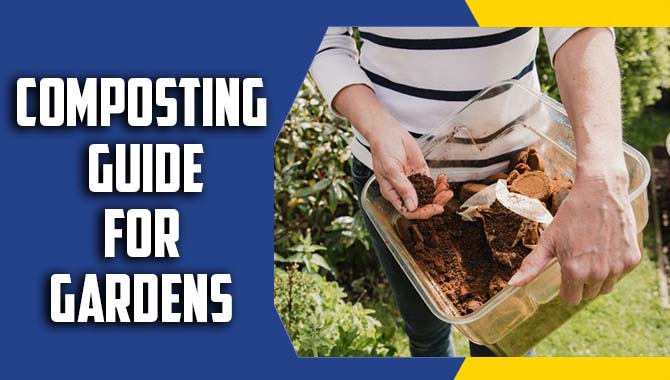
What Is A Compost?
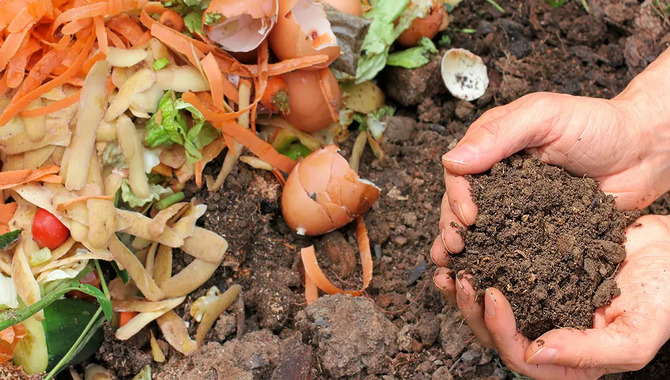
Compost is a natural process of decomposing organic materials into a nutrient-rich soil amendment that use to fertilize gardens, lawns, and agricultural fields. Composting is a simple and effective way to recycle food scraps, yard waste, and other organic materials that would otherwise end up in landfills.
Composting involves creating a pile of organic matter and allowing it to decompose over time. The decomposition process is facilitate by microorganisms. Which breaks down the organic matter into humus, a dark, crumbly soil-like material rich in nutrients and beneficial microorganisms.
Tools For Composting Garden
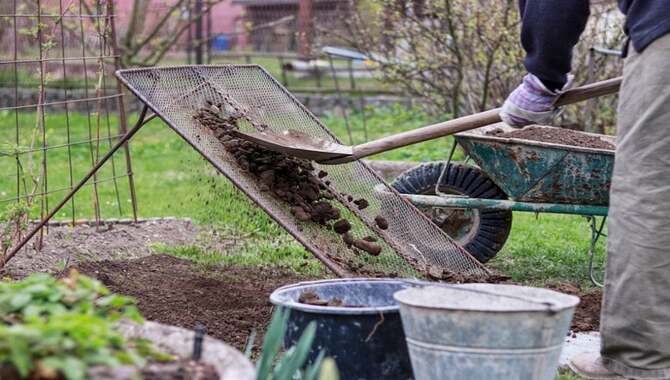
- Compost Bin: A compost bin is essential for containing and managing the composting process. It can be a traditional stationary bin, a tumbler-style bin, or a homemade enclosure made of wire mesh or wooden pallets.
- Pitchfork or Compost Turner: These tools turn and aerate the compost pile. Turning the compost helps mix the materials, introduce oxygen, and promote decomposition.
- Compost Thermometer: A compost thermometer allows you to monitor the internal temperature of your compost pile.
- Garden Fork or Shovel: These tools are handy for harvesting finished compost from the bottom of the pile or bin. They help loosen and scoop out the mature compost.
- Kitchen Compost Bucket or Pail: A dedicated kitchen compost bucket or pail is helpful to conveniently collect kitchen scraps for composting.
Essential Ingredients For A Successful Compost
- A proper balance: of green and brown materials is crucial.
- Adding water is necessary to keep the compost moist but not waterlogged.
- turning the compost pile regularly is important to allow for air circulation and even decomposition.
Composting Guide For Gardens – 5 Easy Methods To Try
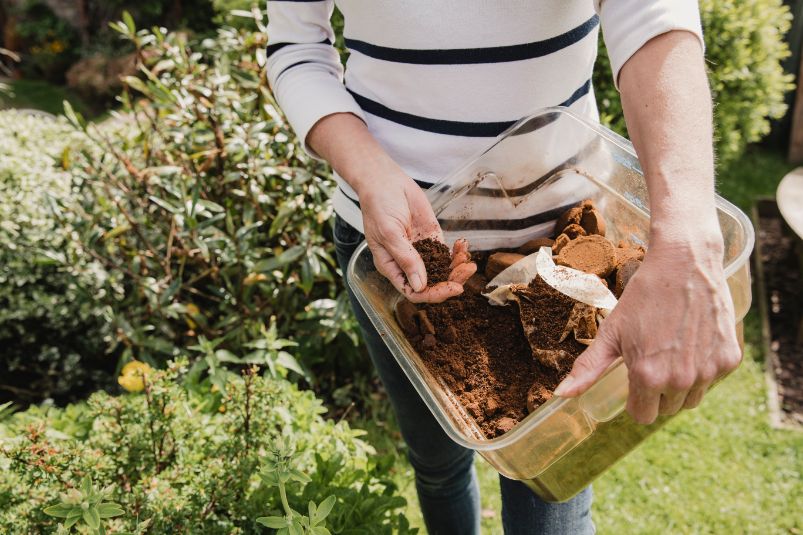
If you’re looking for an effective way to improve the health of your garden, composting is an excellent option. Here are some step-by-step to help with Composting guides for gardens. With a composting guide for gardens, you can learn the step-by-step process of creating nutrient-rich soil that will benefit your plants.
1.Select A Compost Bin Or Area
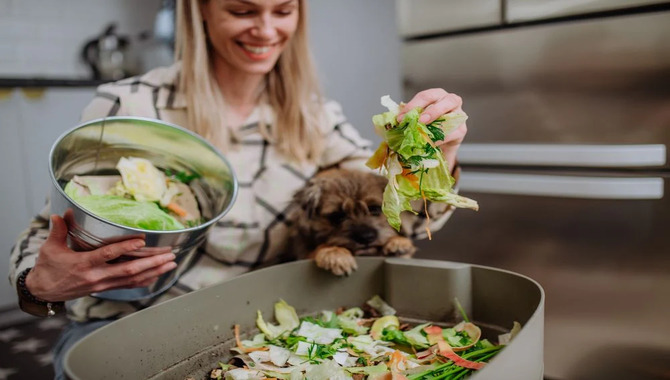
When it comes to composting, selecting the right compost bin or area is crucial for success. There are several factors to consider. When choosing a composting method, include the space available. The types of materials being composte, and the desired end product. Some popular composting options include worm bins, tumblers, and open-air piles.
Worm bins are ideal for limited space, as they don’t take up much room and kept indoors. Tumblers are great for those who want to speed up the composting process, as they allow for easy turning and mixing of the compost. Open-air piles are perfect for those with large yards or gardens, as they require more space and provide a natural habitat for microorganisms. It’s also important to consider the materials being composte.
2.Gather Composting Materials
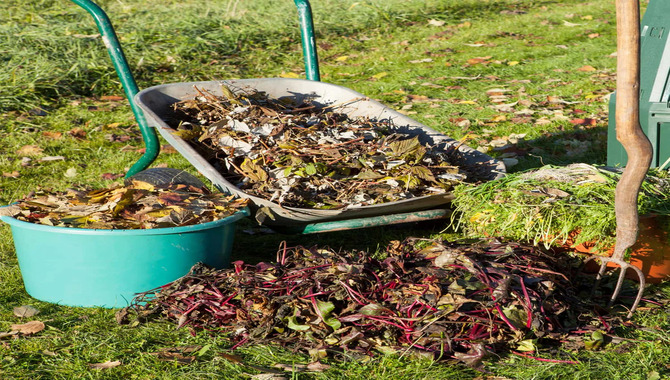
To start a successful composting project, it is important to gather the necessary materials. These materials can come from various sources, including your yard and kitchen. Some common composting materials include leaves, grass clippings, fruit and vegetable scraps, eggshells, and coffee grounds.
Gathering a mix of brown and green materials is important to ensure a balanced compost pile. Brown materials, such as leaves and twigs, provide carbon, while green materials do. Like grass clippings and fruit scraps, they provide nitrogen.
You can add other organic materials to your compost pile, such as shredded newspaper or cardboard. It is important to avoid adding meat or dairy products to your compost pile as they can attract unwanted pests. Once you have gathered your materials, you can build your compost pile. Layer your brown and green materials and add water to keep the pile moist.
3.Start The Compost Pile
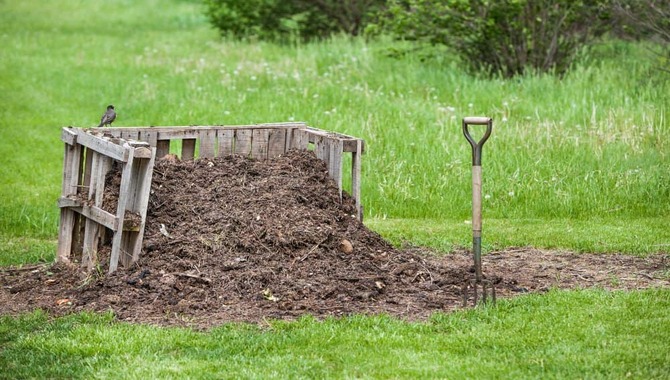
If you want to reduce your environmental impact and make the most of your food waste, why not start a compost pile? Composting is a simple and effective way to turn organic material like food scraps and yard waste into nutrient-rich soil that can be used to nourish your garden or houseplants.
To start your compost pile, choose a convenient location in your yard that is also out of the way. You’ll want to build your pile on bare soil or grass so that the microorganisms in the soil can help break down the organic material.
Begin by layering green materials like vegetable and fruit scraps, coffee grounds, and grass clippings with brown materials like leaves, shredded newspaper, and twigs. Keep your pile moist but not too wet, and turn it regularly to help aerate the compost.
4.Moisten The Pile
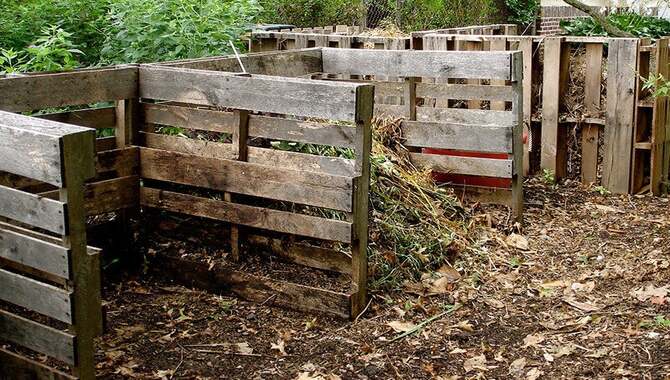
In gardening, composting is an essential process to create nutrient-rich soil. To start composting, you must have a pile of organic materials such as fruit and vegetable scraps, leaves, grass clippings, and manure. However, it is not enough to pile them up and wait for them to decompose.
You need to moisten the pile regularly to keep it healthy. Moistening the pile helps to speed up the decomposition process and prevent it from becoming too dry, which could halt the process altogether.
The best way to moisten the pile is to add water until you reach the desired moisture level. Adding too much water might become too wet, and the materials might start to rot instead of decompose. Hence, monitoring the pile and adjusting the moisture level as needed is crucial. In addition to watering, you can turn the pile to aerate it and mix the materials.
5.Maintain The Compost Pile
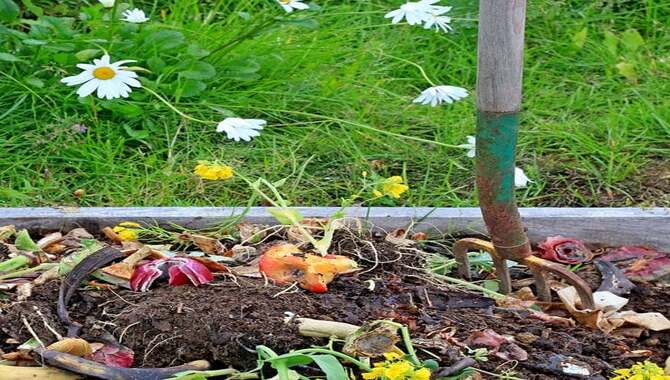
Maintaining a compost pile is essential for anyone who wants to reduce waste and create nutrient-rich soil for their garden. To maintain the compost pile, it’s crucial to balance the carbon and nitrogen-rich materials and keep the pile moist. Carbon-rich materials include dry leaves, straw, and wood chips, while nitrogen-rich materials include kitchen scraps, grass clippings, and coffee grounds.
Losing these materials alternately is essential to create a healthy compost pile. As the pile decomposes, it generates heat, and the temperature should be monitored regularly to ensure it stays between 120 and 150 degrees Fahrenheit.
The heat helps kill pathogens and weed seeds, speeding up composting. The pile should also be turned regularly to allow air to circulate and prevent odours from forming. If the compost pile becomes too dry, it should be watered to moisten the materials.
Troubleshooting Common Composting Issues
Composting is a great way to reduce waste and create a natural fertilizer for your garden. However, like any other garden practice, it can face its fair share of problems. Troubleshooting common composting issues is important to ensure you get the best results possible. One of the most common issues is a foul smell emanating from your compost pile. This can be caused by too much nitrogen-rich material, like food scraps, creating an anaerobic environment.
Adding more brown material like dried leaves or newspaper can help balance the carbon-to-nitrogen ratio and eliminate the odor. Another issue is slow decomposition, which can be caused by a lack of oxygen, moisture, or a poorly balanced mix of green and brown materials. To solve this, you can turn your compost pile frequently, add water as needed, and ensure you have a good mix of green and brown materials.
How To Store Gardens Compost
If you’re an avid gardener, you know the importance of composting. Composting allows you to create nutrient-rich soil that will help your plants thrive. However, once you’ve created your compost, you must know how to store it properly.
The first step is to ensure your compost is fully cured before storing it. This means it should be dark, crumbly, and have a pleasant earthy smell. Once your compost is ready, you can store it in various ways. One option is to use a compost bin or tumbler.
These containers are designed to keep your compost aerated and moist, which will help it break down even further. Another option is to store your compost in large plastic bags. Simply scoop your compost into the bags and tie them tightly to keep out any air. Finally, you can store your compost in a pile outside.
How To Use Compost For The Garden
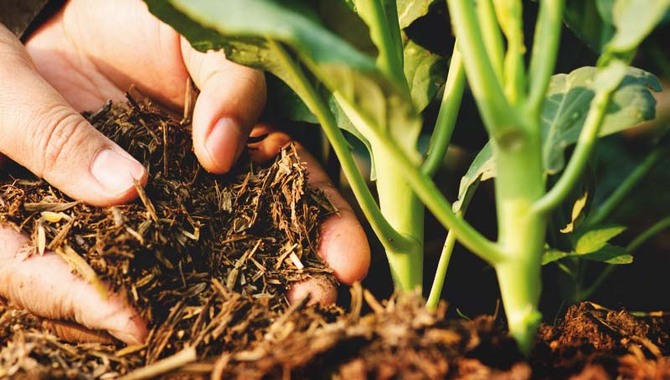
Compost is an excellent way to improve the soil quality in your garden. It is easy to use and provides various benefits for your plants. The first step in using compost for your garden is to decide where to place it. You can purchase a compost bin or create your own using wood, chicken wire, or plastic materials. Once your compost bin is set up, add organic matter like kitchen scraps, yard waste, and leaves.
It is important to mix these materials frequently to ensure proper decomposition. The compost should be ready to use after several months. You can tell it is ready when it looks dark and crumbly. Mixing compost into the soil before planting is best when using it in your garden. This will ensure that the nutrients are distributed evenly throughout the soil.
Composting For Garden Benefits
Nutrient-rich soil is key to a healthy and thriving garden if you’re an avid gardener. One of the best ways to achieve this is by composting. Composting breaks down organic materials, such as food scraps and yard waste, into a nutrient-rich soil amendment you use in your garden. Not only does this reduce waste and help the environment, but it also provides numerous benefits for your garden.
A composting guide can help you start the process and ensure you do it correctly. It’s essential to have a good mix of “brown” materials, such as dried leaves and twigs, and “green” materials, such as food scraps and grass clippings, to create a balanced compost pile.
Additionally, it’s important to turn the pile regularly to encourage decomposition and prevent odors. Using compost in your garden has many benefits. It improves soil structure and water retention, promoting healthy root growth.
Conclusion
Composting is an eco-friendly solution for managing organic waste and improving soil health in garden beds. We have already given you Composting guide for gardens. This comprehensive guide highlights the importance of understanding the science behind the composting process, the types of materials that can be added to the compost pile, and the techniques for maintaining the optimal balance of moisture and oxygen.
By following the guidelines outlined in this guide, gardeners can produce nutrient-rich compost that will help to reduce waste, conserve resources, and promote the growth of healthier plants.
FAQs
[rank_math_rich_snippet id=”s-255597ea-7fbf-4b74-b678-e7362a1e7d8c”]

I am passionate about home engineering. I specialize in designing, installing, and maintaining heating, ventilation, and air conditioning systems. My goal is to help people stay comfortable in their homes all year long.
